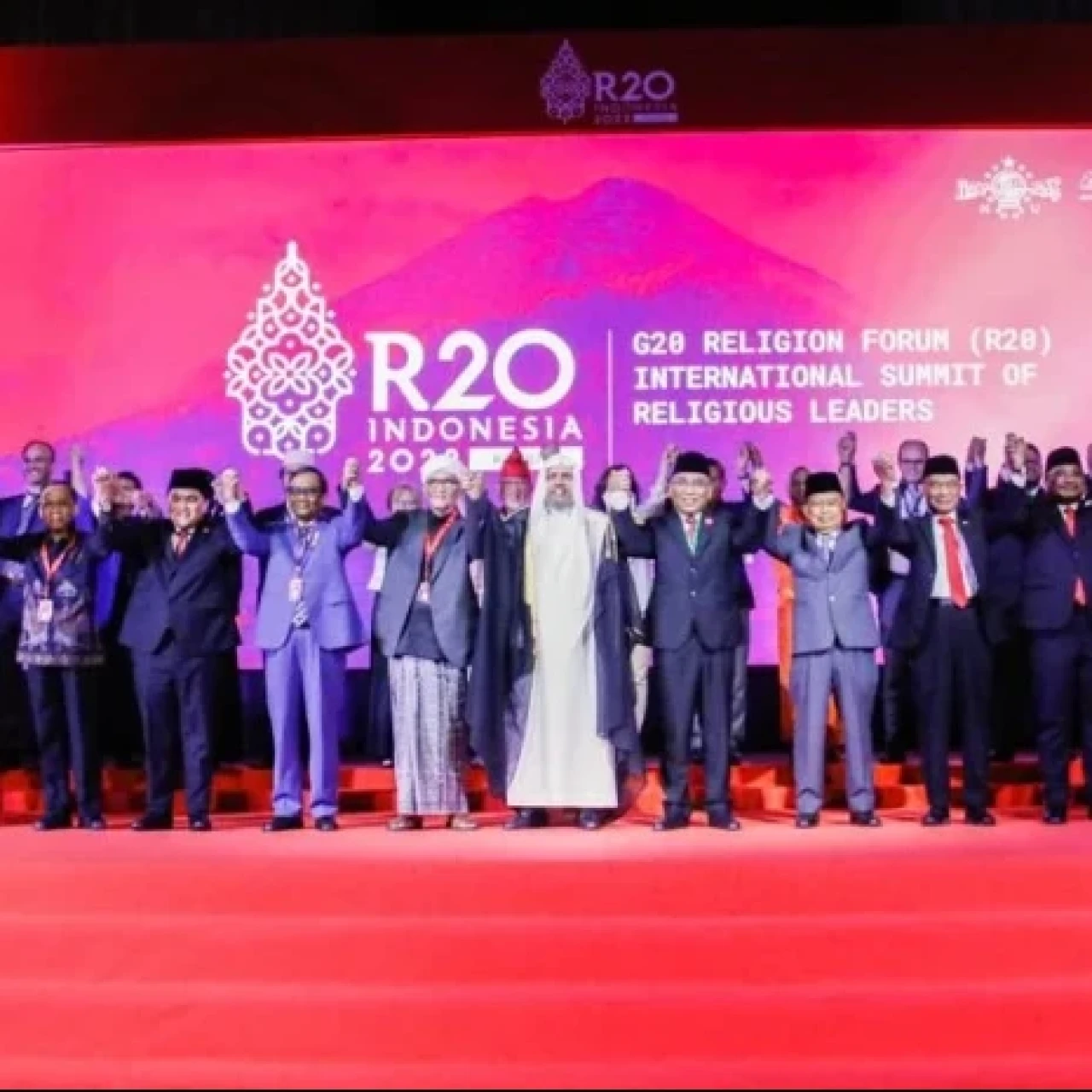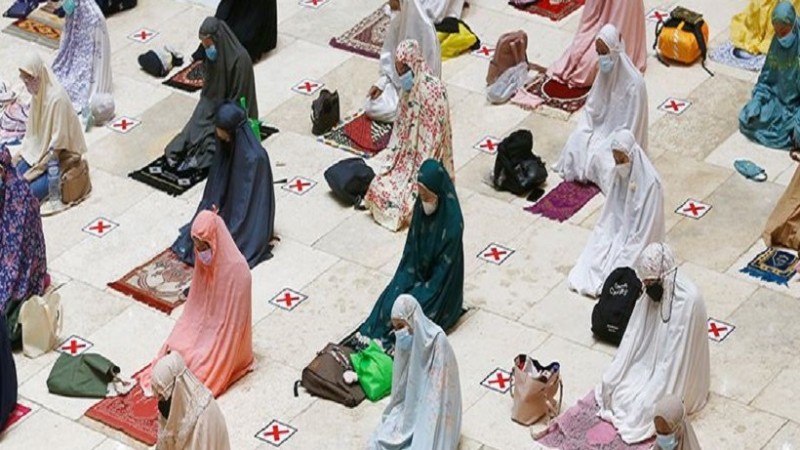A case of the imposing Shari’a (Islamic law) in local government
NU Online · Kamis, 17 April 2008 | 05:36 WIB
Introduction
As a result of reform era in Indonesia, there has been any dramatic shifting in Indonesian political circumstance which is signed by the issued of laws No. 22 1999 which is in turn amended by the laws No 32 2004. This law is concerned with the distribution of power from central government to local government or Provinces around Indonesia. This is a response to reform demand that local government should be given a huge authority to develop its regions rather than subordinated by central government as this occurred under new order regime for 32 years. This regional autonomy law mentioned ‘that local governments at the district level are entitled to have their own implementation regulations and the central government will no longer interfere in the local administration’ (Assyaukanie, 2007).
Accordingly, this paves the way to all provinces government in Indonesia to have an enormous opportunity to create policy or regional regulation (Peraturan Daerah/ PERDA) without central government intervention. It is noteworthy that one of regulations which currently become critical issues is the implementation of religious by laws (shari’a) so called Islamic regional policy (Peraturan Daerah/PERDA syari’ah ). The implementation of this policy brings a lot of problems within society. It is because the implementation of religious by laws (shari’a) to certain degree strictly uses Islamic principles as the mainstream in order to govern society. With regards to these phenomena, some people argue that religious by laws (shari’a) is inevitable to solve society’s problems as secular law cannot resolve the existing problems.<>
On the other hand, other people argue that the implementation of religious by laws (PERDA Syar’ah) can threat democracy as well as pluralism as Indonesian society is very diverse. Bearing this in mind, I would argue here that religious by laws is not appropriate to be implemented in Indonesia despite the fact that it will exacerbate the relationship among religious groups as Indonesia encompasses various ethics, religions and culture and to certain degree this policy also discriminate women. In this regard, I will reveal some factors which lead to mushrooming of religious by laws. In addition, it will deal with the implementation of religious by laws in some regions in Indonesia and some possible solutions will be addressed.
Some factors behind Religious by Laws (Peraturan Daerah Shari’a)
As mentioned above, currently there is a dramatic shifting in Indonesian government particularly in local governments as a result of decentralization policy. It is in fact that some local governments around Indonesia have implemented religious by laws or Islamic law as their local government regulation. There are 25 regions which are pioneered by Aceh such as West Sumatera, Riau, Banten, Sulawesi, East Java, and West Java to mention few regions which currently have implemented regional regulation based on Islamic principles.
Why do some Muslim groups tend to support the implementation of religious by laws? In general, the purpose of the implementation this policy is a response towards secular laws which are perceived failed to bring Indonesia to be better off. For some Muslim groups particularly those who support this policy, they pointed out that this policy is considered as an alternative policy to cope with society’s problems. The proponents of this policy are mostly fundamentalist groups such as Hizbu Tahrir Indonesia/HTI or the Indonesian Islamic Party of liberation), Majelis Mujahidin Indonesia/MMI or the council of Indonesian holy warriors) , Front Pembela Islam/FPI or the Islamic defenders front) to mention few which are willing to completely impose shari’a elsewhere in Indonesia. As pointed out by Hasan, these groups argue that ‘Indonesia has implemented secular laws since the colonial period, but the laws have simply brought about prolong crisis that cannot be resolved to this day’ (Noorhaidi Hasan 2007, 9). Hasan further argues that for these groups, ‘shari’a is the highest law and the only source for all kinds of legislation. It contains all God’s rules derived from Qur’an (holly book) and sunna (prophet tradition) which provide a comprehensive and universal guide and solution to all problems facing human kind.
Apart from the argument mentioned above, there are some factors which lay behind this regulation. According to Effendi, there are three issues relating to this matter. First of all, Islam consists of a value that should be used as guide line in any realm such politics, economy, social and culture. Secondly, approximately 87 percent of Indonesian people are Muslim. Taking this into account, these phenomena should become legitimacy to Islamic state in Indonesia. Thirdly there is a fact that Secular law failed to bring social change in Indonesia. That is why Islam is considered as an alternative to solve the problems (Ridwan al-Makassary 2007).
Likewise, Robin L. Bush (2007) mentioned four factors as to religious by laws becomes widespread in local government. First, history and local culture factor are the case. In this respect, the emergence of religious by laws which take place in some regions is closely related to the regions where the Islamic state struggle or Darul Islam/DI emerged in the past. Secondly, it is closely related to case that the regions have a high potency in corruption since then it is predicted that policy upon which it is based is a way to protect their interest either in the executive, legislative or judicative level. Thirdly, there is local influence. It takes place when there are some figure who want to become candidate in regional leader succession (local election), one of methods in order to attract voters is by offering religious by laws to be implemented. Finally, there are no enough resources such as knowledge as well as skill to make policy on the one hand, and there is huge political opportunity to make policy on the other which led to the religious by laws as the references (Ahmad Suaedy 2007).
Different from those perspectives above, Salim sees that the call for religious by laws or Islamic law (shari’a) is not driven by political tendency alone, but it takes place to show self identity for local government. Salim argues that ‘the struggle for Islamic identity for the Aceh region, however, was not really successful, primarily because the Acehnese ulama (the religious leaders of Aceh) failed to overcome the challenge of a concept of identity at the national level, namely Pancasila, a religiously neutral identity. This failure led the ulama (religious leaders) to change their strategy by demanding their right to self-determination at the provincial level with full authority for self-government, including the implementation of Islamic law. It was believed that the expression of identity would succeed only if applied to its own restricted location. This case shows that in reassertion of their identity, that is the implementation of shari’a, Muslims very often underscore the necessity of a particular political treatment in the form of self-determination’ (Arskal Salim 2004).
Problem with religious by laws (shari’a)
As we know from above explanation that the purposes of shari’a is to implement Islamic values within social life. For those who support this policy mention that rejecting shari’a will only maintain crisis problem. It is noteworthy that the basic principles of Islamic laws which are used to govern society include the obligation for wearing veil (jilbab) for women, cutting hand for the thief, the obligation for reciting Qur’an (holly book), the forbidden for doing gambling, prostitution, and so forth. Luthfi Assyaukanie observes that the implementation of the religious by laws have different concerns for each district, but generally they address seven issues such as ‘the obligation to implement the sharia, decency in dressing and moral conduct, the obligation to read the Qur’an; male and female interaction, gambling, the drinking of liquor; and alms giving’ (Luthfi Assaukanie 2007).
In my point of view, the implementation of shari’a does not necessarily deal with existing problems. There are several reasons as to these arguments. First, imposing shari;a (Islamic laws) will worsen relationship between one religion to another. It is because the policy demands all society to follow Islamic rules whereas not all society belongs to Islam. For example, all roads are blockaded and all activities should be ended when Friday prayer comes. It occurs in Bireun and Bima (Sukron Kamil 2008).
Similarly, ‘In Padang, West Sumatra, a religious by laws (Perda Syari’ah) on Islamic dress (busana muslimah) is said to impinge on people’s freedom as the policy is not only applied to Muslims but also to non-Muslims’ (Assyaukanie 2007). Secondly, religious by laws (shari’a) tends to discriminate women as their freedom is restricted. For example, Assyaukanie points out that ‘religious by laws in Tangerang (Perda No. 8/2005) prohibits women to go out at night. This Policy has stirred controversy amongst many Indonesian women who have to work till late night’ (Lutfi Assyaukanie 2007).
Like wise, as Zakiyah notice that ‘in West Sumatra, for example, the Bill on Social Ills was issued, containing an article that banned women from going out at night without a guardian. On the basis of eliminating prostitution, women were kept home at night with a hope that by so doing prostitution in West Sumatra would be gone’ (Lily Zakiyah Munir n.d, 10). Due to this kind of regulation, in Tangerang Banten, one of women in Tangerang was arrested because she was suspected as a prostitute worker. This case happened ‘simply because the law and order officers found a makeup compact and a lipstick in her bag’ (Jakarta Post, 05/04/2006). Secondly, some local government blindly adopts sharia law without understanding the real problem within society. For example, Syafi’I mentioned that ‘Tangerang authorities have a good intention to eradicate prostitution in the regency but its contents do not reflect this and have sparked controversy in society’ (Jakarta Post, 05/04/2006). According to him, everyone knows prostitution is against religious and ethical norms, but the regency has taken wrong steps in eliminating prostitution as it cannot solve the problem without identifying its root causes and offering a comprehensive solution.
Concluding remark and possible solution
Bearing this in mind, I conclude that religious by laws (shari’a policy) cannot deal with society’s problemst. It is due to the fact that the policy upon which local governments are based are likely to have not correlation with what happens within society. Taking this into account, there are possible solutions with regard to policy problem emerge in Indonesia. First, government should change the regulation because this endangers human right. Secondly, government should accommodate all interest groups in order to listen their as aspiration rather than respecting only certain groups. Furthermore, government should consider public good as their concerned in making policy.
The writer is a student of Public Policy, Postgraduate program Australian National University Canberra
Terpopuler
1
Khutbah Jumat: Ramadhan dan Kesempatan yang Tidak Selalu Terulang
2
Innalillah, Ulama Mazhab Syafii asal Suriah Syekh Hasan Hitou Wafat dalam Usia 83 Tahun
3
Khutbah Jumat: Ramadhan, Melatih Sabar, Memperkuat Syukur
4
Kultum Ramadhan: Lebih Baik Sedikit tapi Istiqamah
5
Keluar Mani yang Tidak dan Membatalkan Puasa
6
Khutbah Jumat: Tiga Kebahagiaan Orang Puasa
Terkini
Lihat Semua














